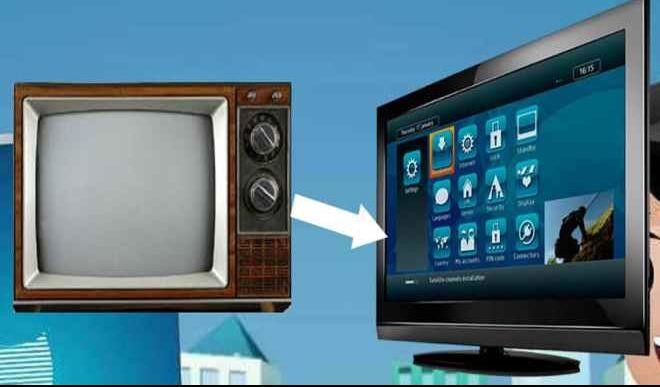I have no quarrel with those Nigerians who wish to move to the Next Level. For those Nigerians who want to fast forward to the Digital Economy, I wish them luck. Personally however, I will be very glad if we will bring back some of the old customs of the pre-digital economy which served us very well in the past. They could continue to do so if they are conserved and refined.
At the weekend, I was reading NiMet’s weather predictions for this year. The meteorological agency predicted the likely start of the rains over different parts of the country and it predicted their likely cessation period. It however warned farmers not to rush and plant their crops at the first onset of rains and it said there will be a long, dry spell in the middle of the rainy season. This information is confusing to farmers, to be frank.
Weather forecasting here has always been imprecise, hedging its bets and speaking tongue in cheek. In the early 1980s when NTA first started its daily national weather forecast at the end of Network News, the meteorologist regularly employed terms such as “partly cloudy” and “thundering activity.” He never allowed his pointer to point at a precise location; he always swept over wide areas of the country on the map. It was so annoying that one newspaper published a cartoon of an elderly man watching the weather forecast on NTA and he said, “Look, Mr. Weatherman! What is this partly cloudy and thundering activity? Tell me straight if it will rain tomorrow so I will carry my umbrella to the office!”
Part of the problem, I think, has to do with what I once read, an article where a meteorologist said that weather forecast should be as local as possible. He said weather forecast for the whole world, for whole continents or even for countries is far from accurate. I think he has a point there because in recent years, I regularly looked at the daily weather forecasts for Abuja as published in the newspapers. They tended to be inaccurate for the most part. Many of the days that NiMet predicted rainfall were dry and some days that it predicted will be dry ended up with heavy rains.
Maybe that was why, in the olden days before we had any computers or smartphones in this country, we had weather stations in every secondary school and in many primary schools. Those weather stations occupied one small part of the school compound. They had a thermometer, which measured the temperature; a wind vane, which showed the direction of the wind; a rain gauge, which measured the amount of rainfall that fell on each day; hygrometer which measured humidity; and a barometer, which measured atmospheric pressure. Each school also had a Weather Prefect, who went to the station every morning and evening and recorded the readings from the instruments. Researchers and meteorologists could use that information and make accurate weather studies for each locality.
In 1980, my Polish lecturer Dr. Robert Miodonski did a weather study of 50 locations around Sokoto town. He found out that the coolest place in Sokoto town is the present location of the Government House and the garden in-between it and the old Sokoto Club. What this means was that in 1903, when the British first arrived, they surveyed the weather all over Sokoto before they chose that site to build the residence of Mr. Hillary, the town’s first colonial Resident who was killed during the Satiru revolt in 1906.
Apart from restoring the weather stations, there was a second pre-digital age habit that I think we should bring back. Every Saturday during our primary school days, we saw the headmaster of Town Primary School, the late Malam Ahmadu Jadadi, arrive at the side of Zamfara river which traversed our hometown, park his motorcycle and proceed to take a reading of the river’s water level. Markings had been made on one of the bridge’s planks, and every week he recorded the reading in a large book. Which digital era agency does that now?
Last week, I was at Abuja’s old Post Office in Garki to collect a parcel sent from abroad. It was a messy affair; parcels were overflowing on the floor and I had to go there on three different days before I got my parcel. I was then taken to a Customs officer in one room, where I was made to pay duty on the parcel. It reminded me of the old Postal Agency in Jega, which was not even a Post Office. Letters were sent to my grandfather “in care of Jega Postal Agency.” Every afternoon when the postal agent closed from work, he came to our house on his bicycle and delivered my grandfather’s letters. Direct. No hassle; no Customs duty.
I marvel these days at the number of Federal Road Safety, Abuja Road Traffic Agency, Police Motor Traffic Division and Special Anti-Robbery Squad [SARS] cops that man Abuja’s roads in order to check vehicle particulars. In the pre-digital age in this country, Native Authorities ensured that every bicycle was registered. Every bicycle had a small plate attached to its mudguard that contained its registration number. In addition, in the pre-digital era, no one rode a bicycle in the night without headlights. I notice that in this digital era, tractors, trucks and even trailers drive around in the night without headlights.
Not only bicycles but even Nigerian dogs were registered in the pre-digital era. We used to see many dogs with a collar around their necks, which was issued by the Native Authority. Also ubiquitous in the pre-digital era was standard weights and measures. In our town’s market, Gwandu Native Authority introduced a standard measure called “mudun Gwandu NA.” Every grain seller must use that mudu to sell grain to customers. NA officials regularly arrived at the market and inspected the mudus at random to ensure that they were not tampered with. Which digital era agency does that now?
Sanitation in the pre-digital era was strictly enforced by the Dubagari, a much-feared NA inspector. He went round daily and ensured that every trader and hawker swept his premises and cleared the dirt. He particularly focused on mango and sugar cane sellers, butchers and tailors who generated the most dirt. In the pre-digital era, no one felled trees for firewood without the permission of Sarkin Daji, the NA official in charge of forests. In the digital era you see whole truckloads of firewood driving right past the Ministry of Environment.
No pre-digital era traveler could enter a village or town and ride on his camel. You dared not. A man approaching a village must dismount from his camel and walk so that he does not see other people’s wives in their open bathrooms and toilets. Unlike in this digital era when a person arrives in town and goes straight to a hotel, in the pre-digital era every visitor who arrives in a village or a town must first report to the village head. He will be questioned on where he came from, what is his business in town, and where he is proceeding to.
In this digital era, Fulani elders have lost control over their kids, many of whom are now professional kidnapers and cattle rustlers. In the pre-digital era, Fulani men and women were the most law-abiding people. They were always present in large numbers in the premises of Alkali Courts, waiting patiently in the court premises for days on end, suing or being sued. Why is it that in this digital era when the courts have computers and internet, these same people do not submit to their authority but prefer to carry out punitive reprisal attacks on any community that offends them?

 Join Daily Trust WhatsApp Community For Quick Access To News and Happenings Around You.
Join Daily Trust WhatsApp Community For Quick Access To News and Happenings Around You.


